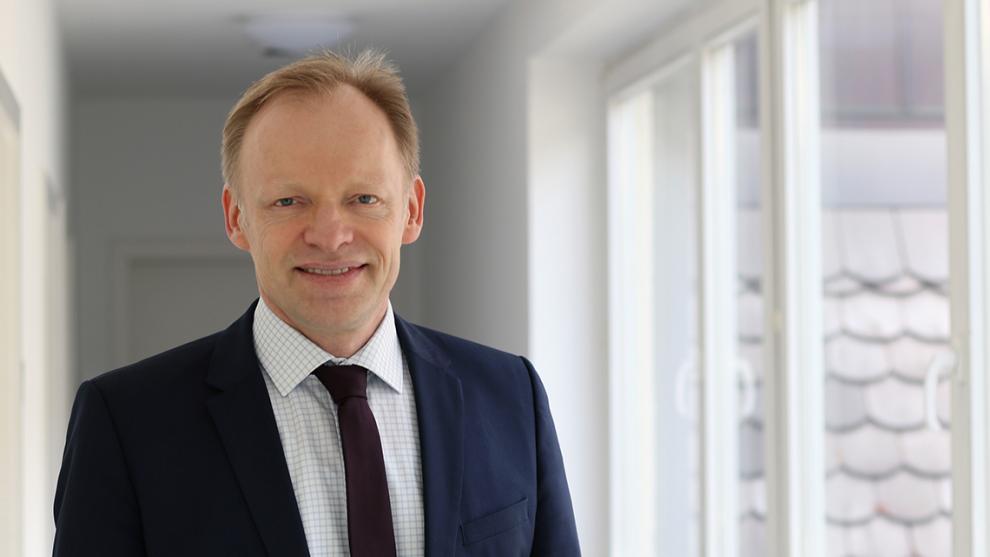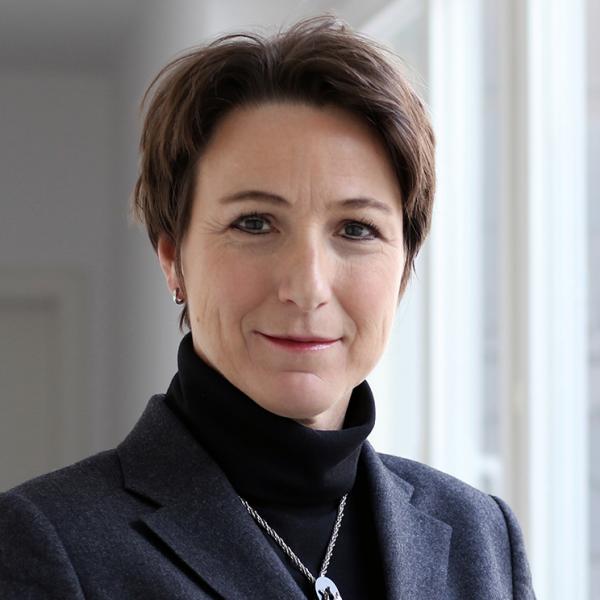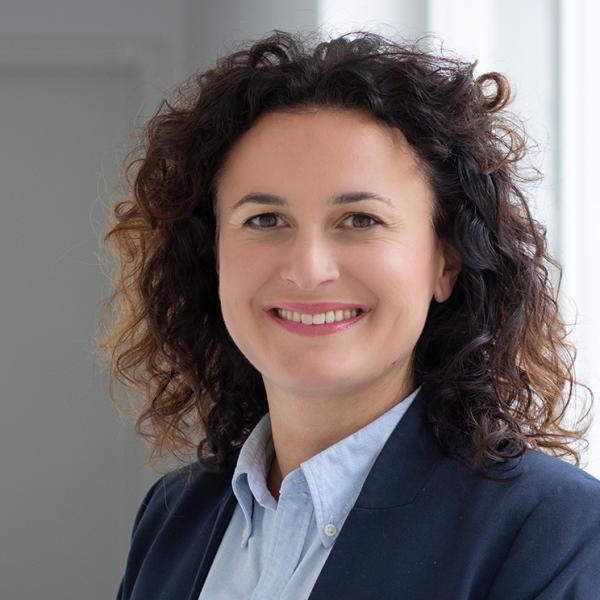ifo Media Center
The ifo Institute invites you to participate in the discussion of interesting economic topics via the Internet. In our ifo Media Center a whole series of remarkable events are available and can be viewed in full length. We also record selected speeches and presentations given by employees or at events and make them available in our Media Center.

Lack of Orders Slows Down the German Economy
The order shortage in Germany has worsened and is an obstacle to the economy. In April, 39.5% of manufacturing companies reported a lack of orders, up from 36.9% in January. In the service sector, the proportion rose from 32.1% to 32.4%. “The lack of orders is hampering economic development in Germany,” says Klaus Wohlrabe, Head of Surveys at ifo. “Almost all industries are affected.”
Covid-19 Economic Assistance in Bavaria Reached All Affected Industrie
In Bavaria, Covid-19 bridging aid was received mainly by the many smaller companies with fewer than 50 employees and in those industries particularly affected by the pandemic. This is the finding of the ifo Institute’s initial evaluation of this aid as part of a study commissioned by the Chamber of Commerce and Industry (IHK) for Munich and Upper Bavaria. The study assessed seven funding programs with payouts totaling EUR 11.2 billion resulting from more than 300,000 applications. Most of the money went to eateries and hotels, which were among the most affected by pandemic-related closures. These businesses received 40 percent of the total funding, or EUR 4.7 billion. Next came retailers with EUR 1.6 billion and the arts and culture industry with a total of EUR 1.3 billion.
Negative Effects in Northern and Eastern Europe Due to War in Ukraine
Economic experts in Northern and Eastern Europe are seeing the negative impact of the war in Ukraine on the political and economic situation in their countries particularly clearly. This is a finding of the Economic Experts Survey (EES) conducted by the ifo Institute and the Swiss Economic Policy Institute (IWP). “Since the outbreak of the war, respondents who mention the keywords ‘Russia,’ ‘Ukraine,’ ‘NATO’ or ‘War’ in their answers have a much more negative view of their country’s political and economic situation than the others,” says ifo researcher Tuuli Tähtinen.
Les économistes se montrent critiques à l’égard de l’Allemagne
Les professeurs d’économie attribuent à l’Allemagne une note de seulement 3,4 (sur une échelle de 1 à 6, 1 étant la meilleure note) dans une étude comparant les différentes économies du monde. C’est ce qui ressort du dernier panel d’économistes de l’Institut ifo. 38 % des personnes interrogées ont attribué la note 3, 20 % la note 2, 17 % la note 4 et 20% la note 5. « Ce mauvais résultat est inquiétant pour une nation industrielle comme l’Allemagne », estime Niklas Potrafke, directeur du Centre de recherches sur les finances publiques et l’économique politique de l’Institut ifo.
Germany as a Business Location Gets a Poor Report Card from Economists
In an international comparison of business locations, economics professors gave Germany a grade of just 3.4 (on a scale of 1 to 6, where 1 is the best score). This is according to the latest ifo Institute Economists Panel. A grade of 3 was awarded by 38% of respondents, 20% gave a 2, 17% a 4, and 20% a 5. “This poor result is quite worrying for Germany as an industrial nation,” says Niklas Potrafke, Director of the ifo Center for Public Finance and Political Economy.
Institut ifo : le moral des constructeurs automobiles allemands s’améliore
Le climat des affaires s’éclaircit de nouveau en avril dans le secteur automobile allemand. L'indicateur est passé de – 5,3* en mars à – 1,5 point en avril. C’est ce que révèlent les enquêtes conjoncturelles réalisées par l’Institut ifo. « Les constructeurs automobiles allemands estiment que leur situation actuelle s’est légèrement améliorée et sont surtout nettement moins pessimistes qu’en mars concernant les perspectives du secteur », explique Anita Wölfl, chercheuse au Centre ifo de l’organisation industrielle et des technologies nouvelles.
Sentiment in the German Automotive Industry Improves
The business climate in Germany’s automotive industry brightened again in April. The index rose to -1.5 points, up from -5.3 points* in March. “Companies in Germany’s automotive industry rate their current business situation as slightly better, but more importantly, their outlook once again turned much less pessimistic than in March,” says Anita Wölfl, a specialist at the ifo Center for Industrial Organization and New Technologies.
Business Climate in German Retail Improves Again
The ifo Business Climate in retail brightened further in April. The index rose to -14.5 points, up from -17.5 points in March. Assessments of the current business situation improved significantly. Retailers’ business expectations also became somewhat more optimistic, but remain largely cautious. “Consumer-related businesses are likely to support the overall economy in 2024,” says ifo expert Patrick Höppner.
ifo Business Climate Eastern Germany Rises a Second Time in a Row (April 2024)
The ifo Business Climate Index Eastern Germany rose considerably in April. The barometer of business sentiment for the regional economy in eastern Germany climbed to 92.3 points, up from 90.2 points in March. The eastern German companies surveyed provided assessments of their business situation that were somewhat better than the previous month, and they raised their business expectations substantially. The Business Climate Index has now risen for the second time in succession. Signs indicate an upward trend.
ifo Price Expectations Rise Slightly
In Germany, slightly more companies than in the previous month intend to raise their prices in April. The ifo price expectations rose a little to 15.1 points in April, up from 14.3 points in March. “Inflation is unlikely to fall any further in the coming months and is set to remain at just over 2%,” says Sascha Möhrle, economic expert at the ifo Institute.
ifo Employment Barometer Falls (April 2024)
Companies in Germany are proving more cautious in their personnel planning. The ifo Employment Barometer slipped to 96.0 points in April, down from 96.3 points in March. “A lack of orders is causing some companies to put the brakes on hiring,” says Klaus Wohlrabe, Head of Surveys at ifo. “But service providers in some industries, such as data processing and tourism, are taking people on.”
Institut ifo : l’industrie allemande anticipe une baisse de ses exportations
Le moral des exportateurs allemands s’est légèrement dégradé. L’indice ifo des prévisions en matière d’exportations a chuté, passant de – 1,2 point en mars à – 2,0 points en avril. « Le climat est plutôt morose », constate Klaus Wohlrabe, directeur des enquêtes de l’Institut ifo. « Les exportations manquent actuellement de dynamisme. Les perspectives de croissance largement positives de l’économie mondiale ne se reflètent pas encore dans des prises de commandes supplémentaires. »
German Export Expectations Fall (April 2024)
Sentiment in the German export industry has clouded over a little. The ifo Export Expectations fell to -2.0 points in April, down from -1.2 points in March. “The mood is somewhat subdued,” says Klaus Wohlrabe, Head of Surveys at ifo. “The export economy lacks momentum at present. While the global economy offers many good prospects for growth, these aren’t yet being reflected in additional orders.”
ifo Business Climate Index Rises (April 2024)
Munich, April 24, 2024 – Sentiment has improved at companies in Germany. The ifo Business Climate Index rose to 89.4 points in April, up from 87.9 points1 in March. This is its third consecutive rise. Companies were more satisfied with their current business. Their expectations also brightened. The economy is stabilizing, especially thanks to service providers.
Hausse de l’indice ifo du climat des affaires (Avril 2024)
Le moral des dirigeants d’entreprise allemands s’est amélioré. En avril, l’indice ifo du climat des affaires est passé à 89,4 points, contre 87,9 points[1] au mois de mars. Il s’agit de la troisième amélioration consécutive. Les entreprises se déclarent plus satisfaites de la marche de leurs activités et se montrent plus optimistes pour l’avenir. La conjoncture se stabilise, notamment grâce au secteur des services.
ifo Dresden: Workers from Countries That Joined the EU in 2004 Fill Gaps in the German Labor Market
Workers from the Central and Eastern European countries that acceded to the EU in 2004 have filled gaps in the German labor market, finds a study by the ifo Institute’s Dresden Branch. Exactly 20 years later, around 820,000 workers from these ten countries are now employed in Germany. Together, they make up 2.4% of the German workforce. “Contrary to the fears of many, this has not led to German workers being pushed out of the labor market,” says Joachim Ragnitz, Managing Director of ifo Dresden. “People from the Central and Eastern European accession countries are mainly employed in industries and professions that aren’t very attractive to local workers due to low wages or unfavorable working conditions.”
Les économistes prévoient un léger recul de l’inflation mondiale
Les économistes du monde entier anticipent une baisse des taux d’inflation dans les prochaines années. C’est ce qui ressort de l’Economic Experts Survey (EES), un sondage trimestriel réalisé par l’Institut ifo et l’Institut de politique économique suisse IWP. D’après cette enquête, le taux d’inflation mondial devrait atteindre 4,6 % en 2024, avant de retomber à 4,4 % en 2025 et à 4,0 % en 2027. Cette année, l’inflation devrait être de 3,1 % en Allemagne, de 4,2 % en Autriche et de 1,8 % en Suisse. « Les prévisions pour 2024 en matière d’inflation ont de nouveau baissé par rapport au trimestre pré-cédent », constate Niklas Potrafke, chercheur de l’Institut Ifo. « Les experts anti-cipent cependant à l’échelle mondiale des taux d’inflation assez élevés à moyen terme, supérieurs aux objectifs des banques centrales. »
Economic Experts Expect Slight Decline in Inflation Worldwide
Economic experts from around the world expect inflation rates to decline in the years ahead. This is among the findings of the Economic Experts Survey, a quarterly survey conducted by the ifo Institute and the Swiss Economic Policy Institute. According to this survey, the inflation rate worldwide will reach 4.6% in 2024, then 4.4% next year, and 4.0% in 2027. In Germany, inflation for this year is expected to reach 3.1%, in Austria 4.2%, and in Switzerland 1.8%. “Compared to the previous quarter, inflation expectations for this year have fallen further,” says ifo researcher Niklas Potrafke. “But in the medium term, the experts expect inflation rates around the world to remain quite high and above central banks’ inflation targets.”
German Companies Plan to Cut Investment in 2024
Companies in Germany have revised their investment plans for the current year downward. The ifo investment expectations fell to -0.1 points in March, down from +1.2 points in November. “Global demand for capital goods and intermediate goods remains weak and uncertainties persist regarding economic policy. As a result, many companies are postponing their investment decisions,” says Lara Zarges, economic expert at the ifo Institute.
Uncertainty Dampens the Mood of the Self-Employed in Germany
Uncertainty among the self-employed in Germany has increased. As a result, the business climate for this segment has deteriorated, according to the latest ifo survey in March (“Jimdo-ifo Business Climate Index for the Self-Employed”). The index fell to -15.6 points*, down from -14.6 points* in February. “Contrary to the situation in the other sectors of the economy, the self-employed are experiencing increasing doubt,” says ifo expert Katrin Demmelhuber.



